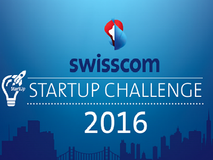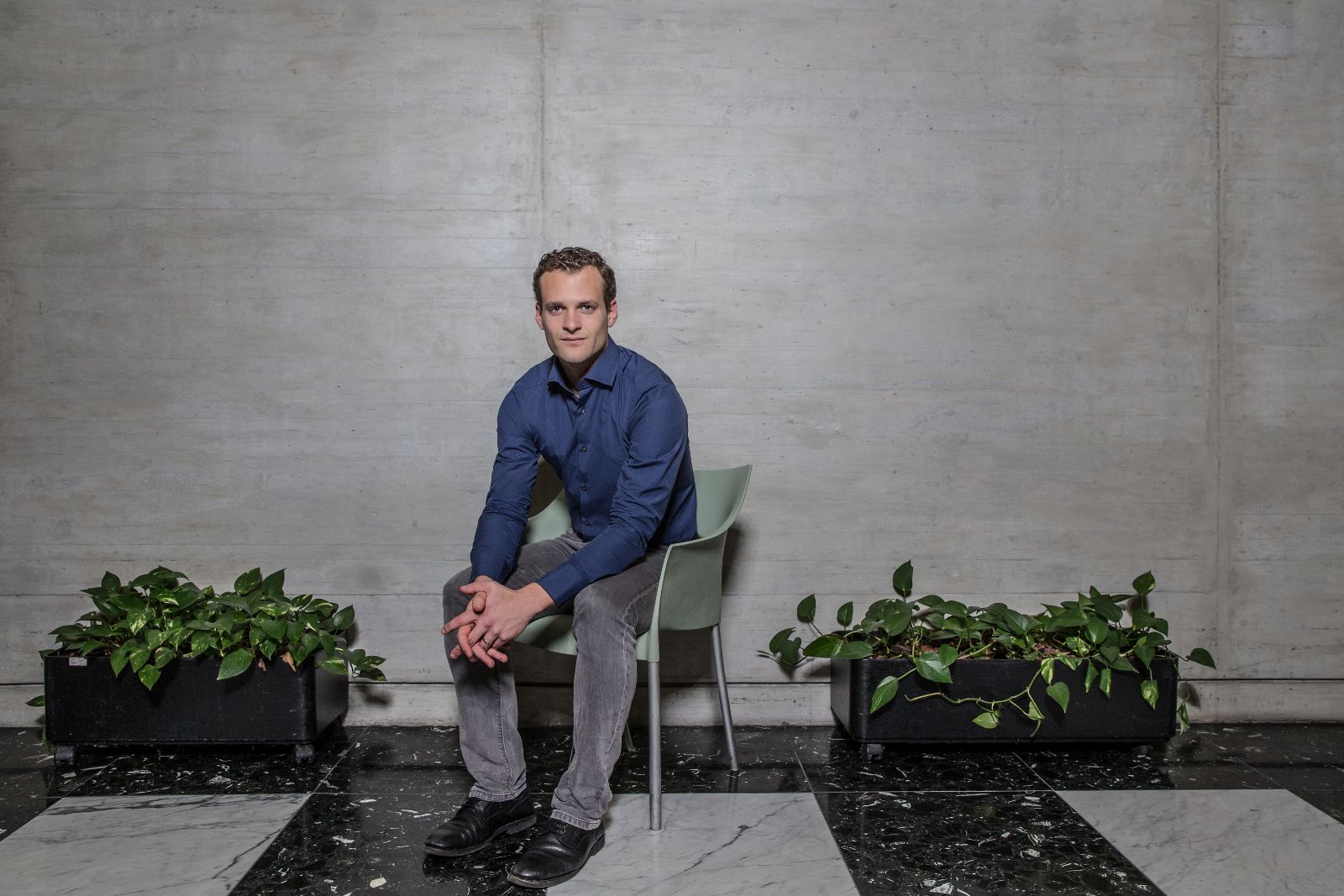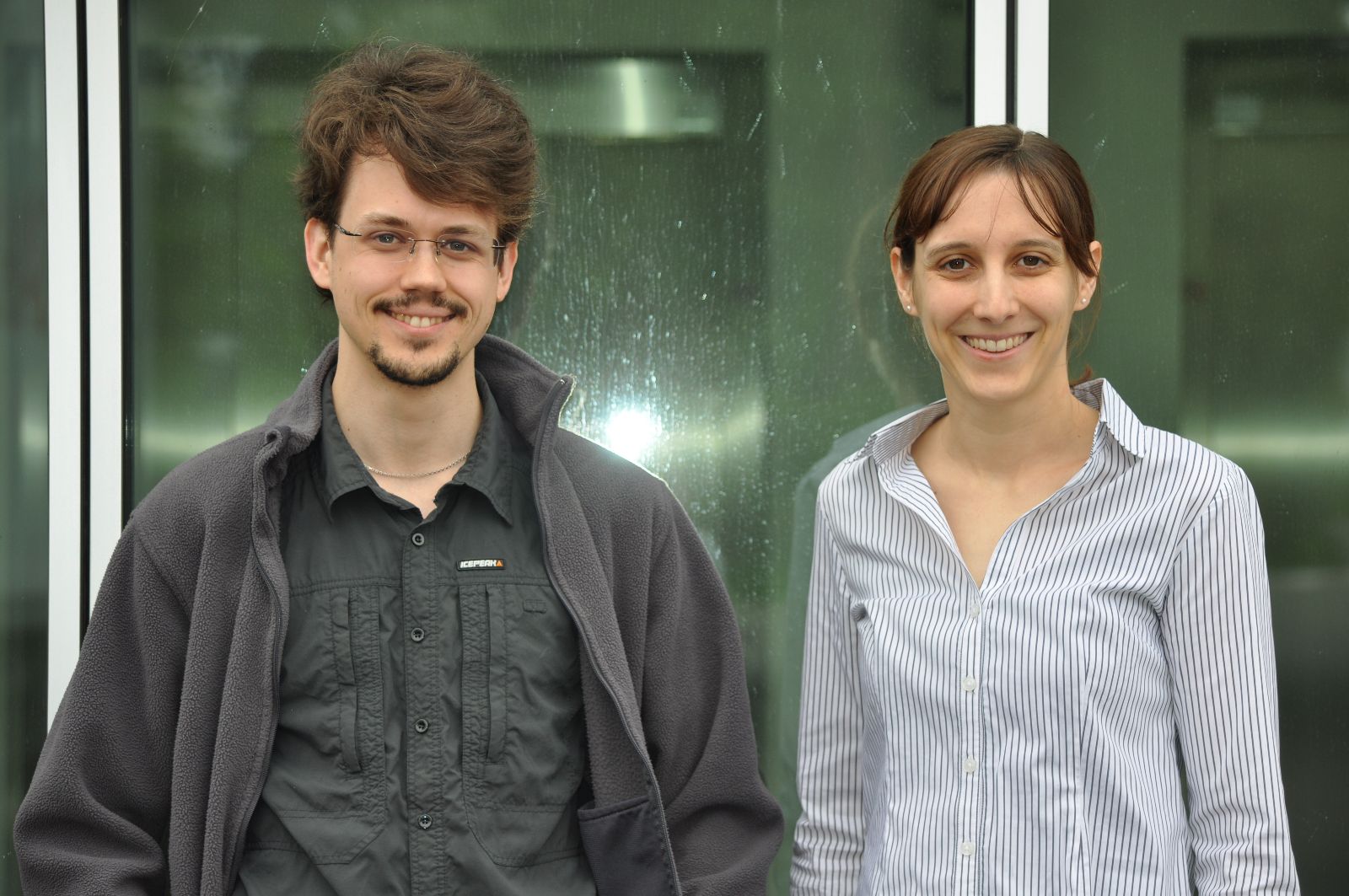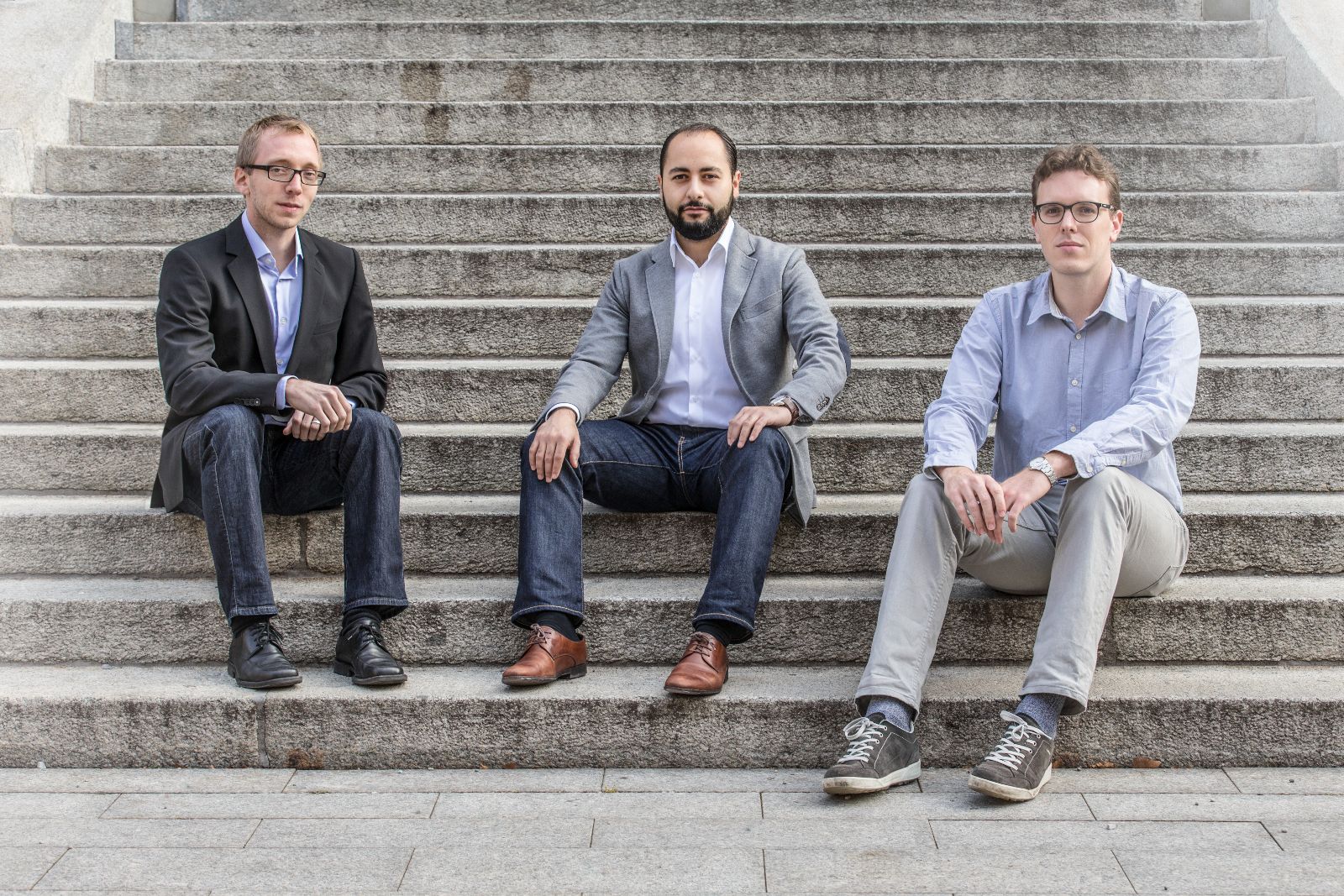The Swisscom StartUp Challenge Top 10 have been chosen
07.07.2016
Swisscom launched the StartUp Challenge 2016 in mid-March. The spots in the Business Acceleration Programme are very sought-after: More than 200 start-ups applied – the most that have ever applied since the first challenge in 2012, and the top 10 have now been chosen. These companies will now have to prove themselves on 16 August at the EPFL, because only the best five start-ups will be flying to Silicon Valley.
 |
208 start-ups submitted an application for the Swisscom StartUp Challenge this year. And the category IT, Web and Software was clearly dominant with over 90 applications. The areas of Hardware and FinTech were also well-represented with nearly 30 applications each. Other participating start-ups come from the areas of E-Commerce, AdTech and Big Data as well as E-Health, Smart Home and Security. More than 90% of all of the young, participating companies come from Switzerland. And most of the applications come from the catchment areas close to the Lausanne and ETH Zurich universities.
Internal jury has chosen ten finalists
An internal jury, consisting of innovation and product managers as well as top management representatives, has selected the top 10 start-ups. During the selection process, the jury took a close look at the general potential of the start-ups. They also evaluated the chances for cooperation or implementation of the respective technology. The jury was particularly impressed with the following ten start-ups: Advanon, Biowatch, Catch Eye, Fashwell, Lykke, Nanolive, qipp, Qumram, xorlab, Xsensio.
Pitch at the EPFL on 16 August
Swisscom, together with its partner venturelab, has invited the top 10 start-ups to take part in the ‘Pitch’ at the campus of the Ecole polytechnique fédérale de Lausanne (EPFL), which will take place mid-August. This is where Swisscom and the EPFL are establishing a competence centre for digitisation within the scope of their strategic partnership. Here the start-ups will need to impress the highly qualified jury, which includes Roger Wüthrich-Hasenböhler (Chief Digital Officer Swisscom) and Adrienne Corboud (Vice President EPFL), to name a few. The five best start-ups will fly to Silicon Valley in autumn.
Advanon
Founded by three former Google employees, Advanon enables SMEs to prefinance their outstanding invoices easily, quickly and transparently. SMEs can have their customer invoices prefinanced by investors on the Advanon online platform and receive their cash within 24 hours. Companies than therefore customise their short-term financing according to their business needs and avoid long waiting times, while investors receive access to a new asset class.

The Team of Advanon
Biowatch
PIN numbers, passwords, keys, credit cards: the longer it takes to identify ourselves and gain access, the more confusing the process becomes – and it is not always user-friendly. The biometric watch produced by Valais-based start-up Biowatch is designed to make things easier: it recognises its wearer from the pattern of their veins and therefore provides clear, secure authentication. Via Bluetooth and NFC, the watch enables users to make online payments, unlock their car, automatically log into their accounts or access buildings.

Matthias Vanoni: Co-founder and CEO of Biowatch
Bridging the gap between video conferencing and real-life conversation is CatchEye’s primary objective. The start-up has developed a video conferencing add-on that enhances video chat picture quality and enables participants to make eye contact. It uses software to optimise images in real time in order to make conversations more personal and improve communication.

The Team of Catch Eye
Fashwell
Every day, Instagram users click on thousands of images of models wearing clothes that they would love to wear themselves. With the ambition of making fashion products accessible to users on the Internet and offering them the opportunity to buy them, three ETH graduates developed Fashwell, an app that enables users to find and buy their favourite fashion products online thanks to an image analysis algorithm based on machine learning.
Lykke
Slow transaction processes, high market fragmentation, lack of transparency: today’s financial structures are out-dated and in need of replacement – this is the credo adopted by Richard Olsen, the founder of Lykke, who wants to develop a global marketplace for all asset classes and instruments. The online marketplace is based on decentrally structured blockchain technology that offers immediate settlement of transactions and much lower transaction costs.
Nanolive
Scientists working for scientists – the start-up Nanolive was founded under this motto at the EPFL Innovation Park in Lausanne. Nanolive is a new type of technology that enables scientists to conduct 3D microscope-based exploration of living cells without damaging them. In particular, it supports breakthroughs in medical research, such as by making it possible to test the effects of medicines on living cells.
.jpg)
Yann Cotte (left) and Sebastien Equis: Co-founders of Nanolive
Qipp
Digitising the real estate industry – that is the aim of the Basel-based ETH spin-off qipp. It has created Allthings, an app that enables property managers and owners to bundle digital services and enhance the relationships between owners, managers and tenants. Allthings includes a whole range of digital services such as a house-moving service, smart home solutions and marketplaces for tenants.
Qumram
Zurich-based start-up Qumram is dedicated to a market with a very bright future – big data. Qumram is a big data platform on which any online data can be entirely and lawfully captured and subsequently retrieved at any moment. It enables companies to meet their record-keeping obligations, identify fraud through analysis of customer interactions and optimise customer experience.
Xorlab
Xorlab is an ETH spin-off that has developed software for the early detection and prevention of client-side attacks. These include spear phishing and drive-by infections that give attackers access to companies’ IT infrastructure and often lead to a range of additional targeted criminal activities. Xorlab scans files and detects whether or not they exploit unknown software vulnerabilities before the attacks can be carried out.

The three founders of Xorlab
Xsensio
The start-up Xsensio, founded at the EPFL in Lausanne, has developed a wearable that uses biochemical information on the surface of our skin to provide real-time information about our state of health and well-being in a non-invasive way. Unlike traditional wearables, Xsensio is based on nanotechnology that exploits information from proteins, molecules and electrolytes on the skin surface.
Internal jury has chosen ten finalists
An internal jury, consisting of innovation and product managers as well as top management representatives, has selected the top 10 start-ups. During the selection process, the jury took a close look at the general potential of the start-ups. They also evaluated the chances for cooperation or implementation of the respective technology. The jury was particularly impressed with the following ten start-ups: Advanon, Biowatch, Catch Eye, Fashwell, Lykke, Nanolive, qipp, Qumram, xorlab, Xsensio.
Pitch at the EPFL on 16 August
Swisscom, together with its partner venturelab, has invited the top 10 start-ups to take part in the ‘Pitch’ at the campus of the Ecole polytechnique fédérale de Lausanne (EPFL), which will take place mid-August. This is where Swisscom and the EPFL are establishing a competence centre for digitisation within the scope of their strategic partnership. Here the start-ups will need to impress the highly qualified jury, which includes Roger Wüthrich-Hasenböhler (Chief Digital Officer Swisscom) and Adrienne Corboud (Vice President EPFL), to name a few. The five best start-ups will fly to Silicon Valley in autumn.
Advanon
Founded by three former Google employees, Advanon enables SMEs to prefinance their outstanding invoices easily, quickly and transparently. SMEs can have their customer invoices prefinanced by investors on the Advanon online platform and receive their cash within 24 hours. Companies than therefore customise their short-term financing according to their business needs and avoid long waiting times, while investors receive access to a new asset class.

The Team of Advanon
Biowatch
PIN numbers, passwords, keys, credit cards: the longer it takes to identify ourselves and gain access, the more confusing the process becomes – and it is not always user-friendly. The biometric watch produced by Valais-based start-up Biowatch is designed to make things easier: it recognises its wearer from the pattern of their veins and therefore provides clear, secure authentication. Via Bluetooth and NFC, the watch enables users to make online payments, unlock their car, automatically log into their accounts or access buildings.

Matthias Vanoni: Co-founder and CEO of Biowatch
Bridging the gap between video conferencing and real-life conversation is CatchEye’s primary objective. The start-up has developed a video conferencing add-on that enhances video chat picture quality and enables participants to make eye contact. It uses software to optimise images in real time in order to make conversations more personal and improve communication.

The Team of Catch Eye
Fashwell
Every day, Instagram users click on thousands of images of models wearing clothes that they would love to wear themselves. With the ambition of making fashion products accessible to users on the Internet and offering them the opportunity to buy them, three ETH graduates developed Fashwell, an app that enables users to find and buy their favourite fashion products online thanks to an image analysis algorithm based on machine learning.
Lykke
Slow transaction processes, high market fragmentation, lack of transparency: today’s financial structures are out-dated and in need of replacement – this is the credo adopted by Richard Olsen, the founder of Lykke, who wants to develop a global marketplace for all asset classes and instruments. The online marketplace is based on decentrally structured blockchain technology that offers immediate settlement of transactions and much lower transaction costs.
Nanolive
Scientists working for scientists – the start-up Nanolive was founded under this motto at the EPFL Innovation Park in Lausanne. Nanolive is a new type of technology that enables scientists to conduct 3D microscope-based exploration of living cells without damaging them. In particular, it supports breakthroughs in medical research, such as by making it possible to test the effects of medicines on living cells.
.jpg)
Yann Cotte (left) and Sebastien Equis: Co-founders of Nanolive
Qipp
Digitising the real estate industry – that is the aim of the Basel-based ETH spin-off qipp. It has created Allthings, an app that enables property managers and owners to bundle digital services and enhance the relationships between owners, managers and tenants. Allthings includes a whole range of digital services such as a house-moving service, smart home solutions and marketplaces for tenants.
Qumram
Zurich-based start-up Qumram is dedicated to a market with a very bright future – big data. Qumram is a big data platform on which any online data can be entirely and lawfully captured and subsequently retrieved at any moment. It enables companies to meet their record-keeping obligations, identify fraud through analysis of customer interactions and optimise customer experience.
Xorlab
Xorlab is an ETH spin-off that has developed software for the early detection and prevention of client-side attacks. These include spear phishing and drive-by infections that give attackers access to companies’ IT infrastructure and often lead to a range of additional targeted criminal activities. Xorlab scans files and detects whether or not they exploit unknown software vulnerabilities before the attacks can be carried out.

The three founders of Xorlab
Xsensio
The start-up Xsensio, founded at the EPFL in Lausanne, has developed a wearable that uses biochemical information on the surface of our skin to provide real-time information about our state of health and well-being in a non-invasive way. Unlike traditional wearables, Xsensio is based on nanotechnology that exploits information from proteins, molecules and electrolytes on the skin surface.


